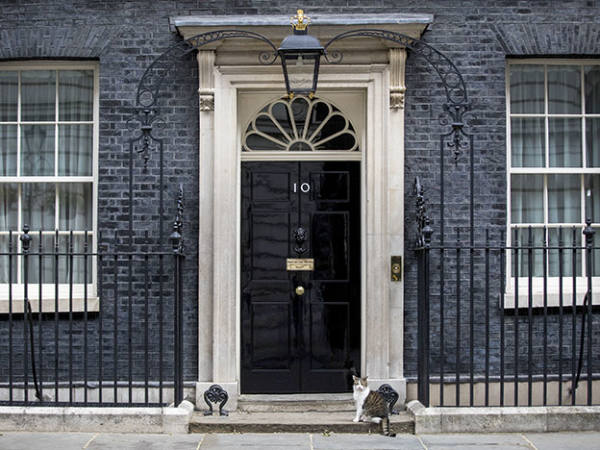Open-ended property funds have had a longer lockdown than most. Having suspended dealing on the back of “material uncertainty” around property valuations in late March, the majority of open-ended, directly invested property funds are still yet to reopen their doors to investors who wish to buy or sell.
Having spent half a year trapped in the funds, investors might finally see some light at the end of the tunnel after a forum of valuation specialists at the Royal Institution of Chartered Surveyors lifted the material uncertainty clause on prices for most UK real estate. This gives some hope that the funds, which cited this uncertainty when suspending trading in March, could begin to reopen their doors in the coming months.
Threadneedle UK Property (GB00B1Q1SR62), a fund with more than £1bn in assets, has already opted to resume dealing on 17 September, with L&G UK Property (GB00BK35DV33) due to reopen in October. Others could eventually follow suit. But after the second bout of mass suspensions in four years, investors with a desire for property exposure should reconsider their options rather than loyally clinging on to open-ended portfolios plagued by structural issues.
Structural problems persist
While this year’s suspensions relate to external events, property fund managers can still struggle to manage assets in an open-ended structure when investors head out the door. While investors can sell open-ended fund units and expect their cash back in a matter of days, selling a property to meet such demands could take months. This liquidity mismatch was the source of the problem both when several funds gated in 2016 and when M&G Property Portfolio (GB00B89X8P64) suspended trading towards the end of 2019, having been buffeted by "unusually high" volumes of redemption requests.
Investors were dropping direct property funds before lockdown took hold (see Chart 1), and potentially have even greater reason to rush for the door now. Some will feel dubious about a fund with exposure to the likes of high street retail and office blocks in the wake of the coronavirus pandemic, while others may have simply tired of a structure that seems to routinely restrict their ability to buy and sell positions.
Looming on the horizon, once again, is Brexit uncertainty. With a messy no-deal scenario looking more likely, sentiment towards UK real estate and the funds that back it could flag yet again. Another investor exodus is not entirely unthinkable. Funds that can handle mass outflows will likely do so by hoarding large cash piles, which may reassure remaining investors but can also drag on returns.
Other structural issues could also prove unhelpful. Some open-ended property funds can manage flows of investor money in part by using a “swing” pricing structure to reflect the costs of having to buy or sell property. "Bid" pricing, for example, used when there are more sellers than buyers, effectively lowers the NAV and makes it less attractive to sell your units.
This did sometimes provide tactical opportunities for investors to buy low and sell high. But some funds, such as Janus Henderson UK Property (GB00BP46GG64) have since moved to a “full spread” system, where all investors initially bear higher costs. This helps to ensure that all investors are treated equally, but may deter those who like to time their investments tactically and take advantage of different prices.
Regulation also threatens to change the profile of the open-ended property sector in different ways. Financial Conduct Authority (FCA) rules due to take effect at the end of this month force certain funds with a focus on illiquid assets to suspend dealing when an independent specialist expresses material uncertainty about the value of 20 per cent or more of their assets. This could mean that, as with the onset of lockdown, extreme events could be accompanied by a raft of property fund suspensions in future.
In a fresh twist, the FCA has separately proposed a notice period of between 90 and 180 days for investors looking to withdraw their money from open-ended property funds. The proposal, which is currently up for consultation, could tackle the liquidity mismatch and would remove the need for property funds to hold high levels of cash at the expense of potential returns. But in a world where investors favour daily dealing, it could also severely limit the popularity of open-ended funds and inconvenience investors looking to reshape their portfolio in a timely manner.
Many gave up on the open-ended format some time ago. Richard Champion, deputy chief investment officer at Canaccord Genuity Wealth Management and one who did so, notes: “It’s inherently an unsatisfactory outcome when you are unable to exit an investment.
“In the past, open-ended property funds have carried large amounts of cash and held listed securities to try and provide liquidity where needed but our experience was unsatisfactory. Even with 15 to 20 per cent [of assets focused on] liquidity, some funds would decline to use that to meet redemptions and gate nonetheless.”
Other options
While some funds are already set to reopen their doors, some question whether others in the sector will immediately follow suit. Managers may instead want to judge the possible outflows that could follow, and whether they have enough cash to meet redemptions.
“The fund managers will be absolutely desperate to avoid a scenario where the fund reopens and then a week later is forced to close over liquidity concerns,” says Oliver Creasey, an equity research analyst for Quilter Cheviot. “That is why they may not rush to reopen until they have a good understanding of their clients’ intentions. Instead, they may try to let others go first and assess the likely impact.”
All of this suggests a sensible and prudent approach, with funds likely building up large cash positions first, to meet mass outflows (see recent cash positions in the chart below).
As such, any return to business as usual may seem sensible and reassuringly managed. But investors should remember that the flaws inherent in open-ended funds that hold illiquid assets have not gone away. Now could be the time to consider the alternatives.
Property as an asset class is likely not dead. The difficulties facing offices and retail may well be overstated, while specialist real estate, from social housing to care homes, retains an allure. Any Brexit outcome could – eventually – result in more certainty for the market, and for sterling assets. Some will also argue that, at least in a pre-Covid world, property has served as a diversifier to equity exposure, a reliable income play, and a buffer against the ravages of inflation.
As with other illiquid assets, investment trusts can be a good home for direct property exposure. With trust shares trading on the secondary market, there is no risk of an investor exodus sparking a liquidity crisis for the fund manager. The range of options is also wide: specialist exposure mentioned above are available via niche real estate investment trusts (Reits), while diversified generalist options such as BMO Commercial Property (BCPT) offer a contrarian play on beaten-up areas such as retail.
But there is no free lunch. Investment trusts are often hailed as the perfect home for illiquid assets, but they do come with a serious catch. If a trust is out of favour, investors rushing for the door will likely have to exit at a reduced price, crystallising a loss. Those who held the BMO Commercial Property trust before Covid hit will be able to exit their position, but likely at a much lower value than when they bought.
As the chart below shows, this does present buying opportunities for the brave, with trusts in unloved sectors trading at deep discounts to the value of underlying assets. But as with any other equities, trust shares are often hostage to sentiment: something may look cheap, and simply never recover.
Investors can, otherwise, go for property shares, though this can be a more volatile prospect than physical exposure. Funds with a focus on shares tend to look beyond the UK, though there are exceptions such as the open-ended ASI UK Real Estate Share fund (GB00BOXWNN66) and the TR Property Investment Trust (TRY).
Finally, a middle ground of sorts does exist. BMO Property Growth & Income (GB00BQWJ8794), an open-ended fund, has a mixture of direct property and shares, with a preference for the latter. Its greater liquidity should allow it to offer daily dealing while being less vulnerable - but not immune - to the threat of trading suspensions. The fund was forced to suspend trading in March, but reopened in mid-June.














